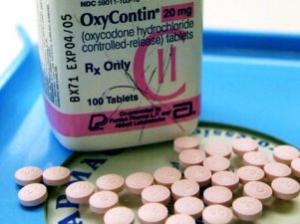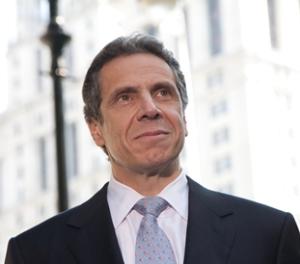As students head back to college this fall, here are some of the most pot-friendly campuses in the country.
StoptheDrugWar.org needs your support to help us stay on the move at a time of both opportunity and crisis in drug policy.
A Houston narc gets hit with a murder charge for lying to a judge to get a no-knock search warrant in a fatal drug raid, Detroit police raid themselves to gather evidence of corruption in their now-disbanded dope squad, and more.
Top White House drug officials signal a laissez-faire stance toward marijuana legalization in the states, a bill to allow pot smoking and vaping on party buses advances in California, the world's third-largest coca producer sees a slight decline, and more.
The DEA finally moves on expanding marijuana research opportunities, a former Houston cop who led a lethal bogus drug raid is charged with murder, a Florida poll shows strong support for marijuana legalization, and more.
Big Pharma companies that deal in opoids are taking a hit, California moves to get rid of a vestige of the dope squad days, and more.
Stony Hoyer goes last century with his embrace of the gateway theory, Louisville ends small-time pot busts, and more.
New York's reformed marijuana decriminalization, which will end arrests for public possession or smoking, is now in effect, and more.
The Princeton Review has released its annual compendium of rankings and ratings of institutions of higher learning across the land, The Best 385 Colleges 2020 Edition, and buried deep inside are student survey results>that helped the Review determine which colleges and universities are the most (and least) marijuana-friendly.

Okay, it's not like historic 4/20 days in Boulder, but pot is popular on these campuses. (Creative Commons)
In addition to a myriad of questions about academics, diversity and community, the survey asked 140,000 students, "How widely is marijuana used at your school?"
Before getting to the list, a couple of caveats: First, the survey data is impressionistic -- asking respondents how many other students they thought were tokers instead of asking for self-reporting, which would theoretically be more reliable. Second, the Review provides no hard numbers -- just rankings -- so it's impossible to know if the University of Vermont is way stonier than Pitzer College or just a bit stonier.
That said, the general outline of the pot-friendly colleges skews heavily to the liberal arts and the Northeast, with three outliers on the legal West Coast. And it's fairly consistent over the years. If you review our 2017 articles on the stoniest small colleges and stoniest big schools, you'll see a lot of familiar names.
Here, in rank order, are the Princeton Review's most marijuana-friendly campuses for 2020:
- University of Vermont, Burlington, VT
Enrollment: 11,328
Vermont legalized pot possession last year, but not sales. Still, the students at UV apparently have no trouble finding it. - Pitzer College, Claremont, CA
Enrollment: 1,112.
Part of the Claremont Colleges, this LA-area school is highly ranked academically but includes intercollegiate athletics, too. Go, you fightin' Sage Hens! - University of Rhode Island, Kingston, RI
Enrollment: 13,865
The state is likely to legalize weed next year, but students aren't waiting. Neither are other Rhode Islanders: the state has one of the highest marijuana use rates in the country. - Wesleyan University, Middletown, CT
Enrollment: 3,009
Inspiration for the '90s film PCU poking fun at campus activism, the school generates a steady stream of artists, actors, and musicians. What's inspiring them? - Skidmore College, Saratoga Springs, NY
Enrollment: 2,612
Fun Day is more fun, and the National Comedy Festival is funnier when you're baked. This liberal arts college, a perennial high-ranker, was #1 in 2013 and #4 among small colleges in 2017. - Reed College, Portland, OR
Enrollment: 1,483
A radically liberal small college in a legalization state where chain pot-shops dot the landscape. Absolutely not a shocker. - University of Maine, Orono, ME
Enrollment: 9,365
Another legalization state, and one where college students are taking full advantage of weed's legal status. - Bard College, Annandale-on-Hudson, NY
Enrollment: 1,893
Students at this liberal arts school have to make their way to Massachusetts to score legal weed. That isn't stopping them. - Marlboro College, Marlboro, VT
Enrollment: 183
This tiny private liberal arts college in a legalization state features self-designed courses of study and a self-governed community. It has an organic farm, solar greenhouse, ecological reserve, and observatory. And it has the coolest school mascot name yet: The Fighting Dead Tree. - University of California at Santa Barbara, Santa Barbara, CA
Enrollment: 24,346
UCSB has long had a well-deserved reputation as a party school. And why not? After classes, students can pack a bowl of weed (legal or not -- take your pick in the Golden State), then pick up their surfboards and head to the beach.
This article was produced by Drug Reporter, a project of the Independent Media Institute.
back to top
Dear reader,

David Borden
As I wrote last week, this is a good time and a bad time in drug policy. Marijuana reform continues to have
2019 momentum. Presidential candidates are debating criminal justice and drug policy
more than ever. But politicians are still ready to file new and bad sentencing bills -- so quickly forgetting lessons they claimed to have learned -- and
international human rights in the drug war are in full blown crisis.
We need your help to stay on the move at this important time. Can you make a generous donation for our work at this time? Visit https://stopthedrugwar.org/donate, and click on the tax-deductible donation link or the non-deductible donation link, whichever kind you wish to make. Our donation form accepts credit card, PayPal, and bank ACH.
We especially need help with non-deductible donations to our 501(c)(4) nonprofit. Because our newsletter reports on political candidates, we cover the substantial cost of our web site server and email list service fully with non-deductible funds. This is to protect our tax-deductible 501(c)(3) nonprofit, which can't afford to be implicated, rightly or wrongly, in candidate advocacy. Most of our current funding is of the tax-deductible kind, especially the larger grants and gifts.
Can you make a non-deductible donation to sustain our newsletter through the campaign season? Or a tax-deductible donation for our campaign to stop Duterte's drug war killings in the Philippines? Our web site supports both one-time donations and recurring ones, on cycles including monthly, quarterly, annually, and other options. Visit our Candidates archive page and our Philippines campaign page to see why this is important.
Donations can also be sent by mail. For a non-deductible donation, make your check payable to Drug Reform Coordination Network, and send to P.O. Box 9853, Washington, DC 20016. Tax-deductible donation checks should be payable to DRCNet Foundation, same address.
Visit https://stopthedrugwar.org/about#donations for information on other donation options like stock shares, or to read more about our work. Also visit https://stopthedrugwar.org/global and https://stopthedrugwar.org/philippines for more about what we're doing.
Thank you for your support, and enjoy the rest of your summer.
Sincerely,

David Borden
StoptheDrugWar.org
Washington, DC
"US and UN Drug Policy Reform"
https://stopthedrugwar.org
back to top
A Houston narc gets hit with a murder charge for lying to a judge to get a no-knock search warrant in a fatal drug raid, Detroit police raid themselves to gather evidence of corruption in their now disbanded dope squad, and more.
In Detroit,
police investigators seized records and computer data last Thursday -- from their own department. The raid was part of an ongoing internal probe into corruption allegations aimed at the department's drug operations. This latest investigation into the Narcotics Section, which was shuttered in 2014 because of rampant corruption, comes after a large shipment of drugs that had been seized in Detroit was switched for another substance by the time it got to Chicago for a court hearing, Craig said. That same day, a longtime narcotics officer, Michael Mosley, was indicted in federal court Thursday on charges related to allegations that he took a bribe from a drug dealer, who left the cash in the backyards of abandoned Detroit houses.
In Houston, a former Houston Police narcotics officer was arrested last Friday on murder charges over his central role in a drug raid that left two innocent homeowners dead and five police officers wounded. Gerald Goines is accused of lying to a judge about an informant buying heroin at a house where the raid occurred so he could obtain a no-knock search warrant. Goines has admitted in court documents there was no informant. No heroin was found at the home of Dennis Tuttle and Rhogena Nicholas, who were both shot multiple times after Tuttle confronted the intruders with a weapon.
In Chesapeake City, Maryland, a Curtis County jail deputy was sentenced Monday to 2 ½ years in federal prison on charges he smuggled heroin, cocaine, cellphone batteries, electronic cigarettes and superglue into the jail. Deputy Jenis Leroy Plummer Jr., 34, went down after jail officials grew suspicious and placed him under surveillance. They then saw him pick up a package containing electronic cigarettes, two baggies of white powder, and a container of KrazyClue. In all, Plummer smuggled about an ounce of heroin and an ounce of cocaine into the jail, netting himself about $6,500.
back to top
Top White House drug officials signal a laissez-faire stance toward marijuana legalization in the states, a bill to allow pot smoking and vaping on party buses advances in California, the world's third largest coca producer sees a slight decline, and more.

Marijuana party buses could be coming soon to the Golden State. (Creative Commons)
White House Drug Officials Say Legal Marijuana Is Up to States. A pair of top federal drug officials said this week that marijuana legalization should be left up to the states. Jim Carroll, head of the Office of National Drug Control Policy (ONDCP -- the drug czar's office) said he considers legalization a states' rights issue. Carroll's remarks were echoed by Anne Hazlett, a senior ONDCP advisor, who said marijuana legalization is "a state decision."
California Marijuana Party Bus Bill Advances. A bill that would allow passengers on party buses to smoke and vape marijuana products was approved Wednesday by the Assembly Appropriations Committee. Senate Bill 625 would allow passengers 21 and older to use the products on a bus, limousine, or modified limousine as long as the driver's compartment is sealed off by a physical barrier and ventilated separately from passenger areas. The bill now heads for an Assembly floor vote.
Florida Sees New Industry-Backed Marijuana Legalization Measure Filed. A major player in the legal marijuana industry, the multi-state dispensary chain MedMen, is leading the charge for a second marijuana legalization initiative campaign in the Sunshine State. A political committee linked to MedMen, Make It Legal Florida, filed the initiative earlier this month. It would legalize the possession of up to 2.5 ounces of marijuana and allow recreational sales through medical marijuana dispensaries. There is no mention of home cultivation.
International
Bolivian Coca Production Drops, UN Says. The land area under coca cultivation in the world's third largest coca producer declined 6% last year, the UN Office on Drugs and Crime reported Thursday. UNODC said cultivation was some 57,000 acres, down from a little more than 60,000 acres in 2017. But UNODC also noted that cultivation was still above what is legally allowed by Bolivian law, which is some 54,000 acres.
back to top
The DEA finally moves on expanding marijuana research opportunites, a former Houston cop who led a lethal bogus drug raid is charged with murder, a Florida poll shows strong support for marijuana legalization, and more.

The DEA is finally moving to expand researchers' ability to grow their own marijuana. (Creative Commons)
Federal Government to Expand List of Marijuana Research Growers. The DEA said Monday it would move to expand the number of growers allowed to grow marijuana for research purposes. The move comes three years after DEA began accepting applications from researchers, but it had yet to act on any of them, and weeks after researchers filed court papers asking a judge to force the DEA to process their applications.
Florida Poll Has Two-Thirds Support for Legalization. A new poll by Fabrizio, Lee & Associates has support for marijuana legalization at 67% among likely Florida voters. Only 29% opposed legalization. The poll comes as two legalization initiative campaigns seek to position themselves to appear on the 2020 ballot.
New Jersey Governor Vetoes Pot Expungement Bill. Gov. Phil Murphy (D), a proponent of marijuana legalization, has vetoed a bill that would have allowed people with small-time pot convictions to get their records expunged. Murphy said the expungement process in the bill was too cumbersome and he wanted it to be easier. "Nobody that I know -- certainly not me -- is opposed to automatic expungement. That's something we would all like to be able to flip a switch and you're expunged," Murphy said earlier this year.
Law Enforcement
Former Houston Cop Who Led Deadly Bogus Drug Raid Charged with Murder. Prosecutors have charged the former Houston police officer who led a February raid that left two innocent homeowners dead and five officers injured has been charged with murder after authorities said he lied to obtain a search warrant for the raid. Gerald Goines, a 35-year veteran, faces two murder counts in the deaths of Rhogena Nicholas and Dennis Tuttle. A second former officer, Steven Bryant, is charged with tampering with evidence. Gaines falsely told a judge an informant had purchased heroin at the home and that the man selling drugs was armed so he could obtain a no-knock warrant. Police found no heroin at the home; only personal use amounts of marijuana and cocaine.
International
Mexican Bishop Calls for Dialogue Between Government and Armed Groups, Including Drug Cartels. A bishop in the country's opium farming heartland is urging the federal government to hold talks with armed groups, including drug cartels, saying that many in the drug business now can't make ends meet and are "seeking an exit." Bishop Salvador Rangel Mendoze of Chilpancingo-Chilapa (Guerrero state) commented after Interior Minister Olga Sanchez Cordero said last week that the government was in talks with armed groups such as so-called community police and self-defense militias, but not the cartels. "If the government wants to dialogue with these criminal groups and, above all, wants to talk with these community police forces, I think that's good," Bishop Rangel said. "To get peace you have to dialogue, even with Satan, with whomever it might be to get peace. But they have this point of view that we don't want to talk because they break the law. At least you have to listen to them." Rangel added that the opium economy had collapsed because of the rise of fentanyl and now some cartel leaders "no longer want to fight because it doesn't make sense. What are they fighting over? … Now, nothing."
back to top
Big Pharma companies that deal in opoids are taking a hit, California moves to get rid of a vestige of the dope squad days, and more.

Purdue Pharma is offering to settle thousands of claims arguing that it jumpstarted the nation's opioid crisis.
California Senate Passes Bill to End State Narcotics Registry. The state Senate voted unanimously Tuesday to approve AB 1261, which would abolish the state's narcotics registry. A vestige of dope squad days, the registry was a requirement that anyone convicted of a drug felony, including marijuana cultivation, register with their county sheriff for five years after release. The measure has already passed the Assembly but has to go back for a final vote after changes were made in the Senate.
Heroin and Prescription Opioids
Oklahoma Judge Finds Johnson & Johnson Liable for Opioid Epidemic. In the first of more than a thousand lawsuits against Big Pharma over its role in the opioid epidemic to be settled, a district court judge ruled Monday that Johnson & Johnson and its subsidiaries helped fuel the state's opioid crisis and ordered the company to pay a whopping $572 million. "The opioid crisis has ravaged the state of Oklahoma," Cleveland County District Judge Thad Balkman said before announcing the judgment. "It must be abated immediately." Johnson & Johnson said it planned to appeal.
Purdue Pharma Offers to Settle Opioid Lawsuits for $10-12 Billion. Purdue Pharma, the makers of Oxycontin, and its owners, the Sackler family, have offered to settle more than 2,000 lawsuits pending against the company for $10 to $12 billion. The lawsuits, brought by states, cities, and counties, allege that the company and the Sacklers are liable for starting and sustaining the opioid crisis. They maintain that the company's sales practices were deceptive and at least partly responsible for the opioid crisis. In a statement, the company said: "While Purdue Pharma is prepared to defend itself vigorously in the opioid litigation, the company has made clear that it sees little good coming from years of wasteful litigation and appeals. The people and communities affected by the opioid crisis need help now. Purdue believes a constructive global resolution is the best path forward, and the company is actively working with the state attorneys general and other plaintiffs to achieve this outcome."
Kratom
Michigan Bill Would Require a Prescription for Kratom. A Republican state senator has filed a bill that would require kratom users to get a prescription for the herbal supplement. Sen. John Bizon (R-Battle Creek) filed SB 433, calling kratom "dangerous and addictive" in a news release. He also cited "an alarming increase recently in the number of deaths from this relatively unknown drug," but in almost all cases of fatal overdoses involving kratom, other drugs were present, making it difficult to determine kratom's role -- if any -- in those deaths.
back to top
Steny Hoyer goes last century with his embrace of the gateway theory, Louisville ends small-time pot busts, and more.
Top House Democrat Uses Gateway Theory to Oppose Marijuana Legalization. House Majority Leader Steny Hoyer (D-MD), the second highest ranking Democrat in the House, wrote Monday that he has yet to embrace marijuana legalization because he believes it is a gateway to "harder, more harmful drugs." Hoyer noted that he supported medical marijuana and marijuana decriminalization, but remained leery of legal weed. "I still have concerns on this after speaking to people who deal with drug abuse and rehabilitation issues and particularly after learning of the drug's harmful consequences as a threshold drug that leads to the use of harder, very harmful drugs," Hoyer wrote, using alternative language to describe the long-discredited gateway drug theory.
Washington State to Overhaul Legal Marijuana. The state's Liquor and Cannabis Board is proposing changes five years after the state legalized marijuana. "Cannabis 2.0" would overhaul industry rules to boost minority ownership of pot businesses, pave the way for home delivery of medical marijuana, and let the smallest commercial growers increase the size of their operations to become more competitive. The board has proposed two bills for the next session of the legislature: one would create a social equity program to increase minority ownership, while the other would allow small producers to sell medical grade marijuana direct to the state's 36,000 patients, who have long complained they have a hard time finding medical grade marijuana because it requires additional testing for pesticides and heavy metals.
Louisville Ends Small-Time Pot Arrests. Small-time marijuana possession will no longer be prosecuted in Jefferson County, home of Kentucky's largest city, the county attorney's office announced Wednesday. Jefferson County Attorney Mike O'Connell cited racial disparities for the change. "For me to be a minister of justice, I cannot sit idly by when communities of color are treated differently." Following the announcement, Louisville Police Chief Steve Conrad said he will instruct his officers to not "routinely write citations for this specific offense."
back to top
New York's reformed marijuana decriminalization, which will end arrests for public possession or smoking, is now in effect, and more.

New York Gov. Andrew Cuomo hit by protest over stalled NYC safe injection sites. (Creative Commons)
New York's Marijuana Decriminalization Reform Now in Effect. A bill deepening the state's decriminalization went into effect today. Now, people can publicly possess up to two ounces of marijuana or smoke it without criminal penalties. That's because the new law changes Marijuana Possession in the Fifth Degree from a low-level misdemeanor to a non-criminal violation, meaning police cannot arrest offenders, only ticket them. Although the state decriminalized possession in the 1970s, police in New York City arrested tens of thousands of people for public smoking or possession using that charge -- including people whose marijuana only went into public view after police ordered them to show it.
Harm Reduction
Protest at New York Governor's Manhattan Office Over Slow Progress on Safe Injection Sites. Dozens of harm reduction activists blocked entrances to Gov. Andrew Cuomo's (D) midtown Manhattan office on Wednesday as they demanded he approve a city plan to open four "overdose prevention centers" (safe injection sites). The city had announced the plan more than a year ago but it seems stalled, and activists lay most of the blame on Cuomo, whom they accuse of intentionally delaying a mandated review of the program by the state Department of Health. Thirteen people were arrested amid chants of "Cuomo lied, people died."
back to top







